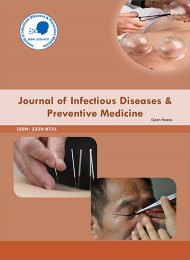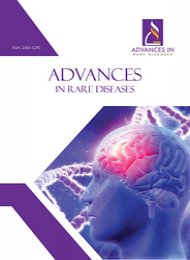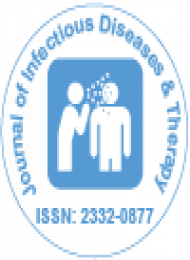Theme: “Acknowledge Orphan drugs are Ray of hope for rare diseasesâ€
Rare Diseases 2023
We are Welcoming all to our prestigious 8th Annual Summit on Rare diseases and orphan drugs during July 24 -25, 2023 at London, UK.
We are coming up with the imaginative subject “Rare Diseases and Orphan Drugs”, which means to offers new thoughts, procedures and strategies that legitimately influence the manner in which you work together and the administration which holds prominent experts in the field of Rare Diseases and Orphan Drugs.
Rare Diseases 2023 is the stage of famous researchers, experts, college professors, specialists, and understudies, comprising of addresses. Oral and publication introductions, presentations and substantially more learning, share your Research involvement and get name acknowledgment and Certificates marked by our prominent world-class sorting out the advisory group.
No other occasion will offer a progressively noteworthy rundown of keynote speakers, quality colleagues and connecting with substance. This is an appealing occasion for representatives from Universities and Institutes to associate with researchers. Fascinate members can affirm their cooperation by consolidating the gathering with their associates.
We take a lot of privilege in inviting all the participants from all over the world to attend “8th Annual summit on Rare Diseases and Orphan Drugs” will be held during July 24 -25, 2023 at London, UK which includes prompt keynote presentations, Oral talks, Poster presentations and Exhibitions related to Rare Diseases and Orphan Drugs. It serve as a platform between researchers from academia and health care centres enhanced by its well organized scientific sessions, plenary lectures, poster presentations, world class exhibitions, diverse symposiums, highly enriched workshops and B2B meetings.
Rare Diseases 2023 conduct presentations, distributes information, conducts meetings with current and potential scientists, make a splash with new drug developments, There are more than 6,8001 diseases classified as "rare". While independently these entities are uncommon, as an association they are an important cause of chronic illness, disability and premature death in both children and adults. Rare Diseases meeting the academic and long-term research developments can be discussed enabling a comparison between different theories, concepts and approaches.
Target Audience:
Pathologists
Infectious Diseases Specialists
Pharmacists
Epidemiologists
Health Care Professionals
Bacteriologists
Researchers
Training Institutes
Pharmaceutical Companies
Rare Diseases Associations
Why to Attend?
Rare Diseases and Orphan Drugs conference represents serious uncommon/ unrelated complications that have devastating impacts on people, public health, and economies. These diseases are responsible for rising healthcare costs, lost productivity, and long-term disability. This conference will feature a global audience of scientific leaders, academia and health care professionals, and Orphan Drugs experts who are going to discuss today’s emerging treatments and diagnostics. By bringing together the Rare Diseases community, presenting the latest developments, and identifying unmet treatment needs, Rare Diseases 2022 hopes to accelerate research and drug development in Rare Diseases, improving patient outcomes. It is designed to provide an educational forum that stimulates clinical, research, government and patient communities to create a coordinated and comprehensive approach for advancing the implementation of research, clinical care and other public health interventions critical to improved outcomes in Rare Diseases and Orphan Drugs.
Track 1: Rare Genetic Disorder
A rare inheritable complaint is a disfigurement in which a mortal being has further than usual number of branches or a complaint in which the bases of the patient face backwards. In this world similar people are considered a little personification of God himself or just unattractive. We heard of devil with bases turned backwards. Well, these are nothing but some really serious genetic diseases. Some people with these diseases will live a normal life and some die within a partial hour of their birth.
Here is a list of some really horrifying genetic abnormalities and reasons behind them:
- Ectrodactyly
- Proteus Syndrome
- Polymelia
- Neurofibromatosis
- Diprosopus
- Cutaneous horn
- Cyclopia
Track 2: Rare Skin Diseases
Be it an abnormal- looking red bump on your skin or unlooked-for itchiness at certain portions, issues related to skin conditions are fairly common among people of all ages. While utmost complications regarding our skin are treatable and do not really bear any analogous attention, there are a sprinkle of other rare bones which demand immediate medical advice. In grim cases, these conditions might not be curable as well.
There are large skin conditions that are fabulously rare and affect only hundreds among millions of people. It's still condemning to know the details to stay informed about the symptoms and get yourself examined in case you see the complaint appear on yourself. So learn about the vital particulars of some rare skin conditions.
- Harlequin Ichthyosis
- Morgellons
- Hidradenitis Suppurativa
- Pemphigus
Track 3: Infectious Diseases
An Infectious disease can be defined as an syndrome due to a pathogen or its toxic product, which originate through transmission from an infected person, an infected animal, or a contaminated inanimate object to a susceptible host. An Infectious diseases is also known as Communicable diseases, or transmissible diseases, are illnesses that result from the infection, presence and growth of pathogenic (capable of causing disease) biologic agents in an particular human or other animal host. Bubonic and Pneumonic Plagues are the most notorious of all Infectious diseases.
Infectious diseases:
- Diphtheria.
- E. coli.
- Giardiasis.
- HIV/AIDS.
- Infectious mononucleosis.
- Influenza (flu)
Track 4: Rare Mental and Behavioural Disorders
Mental conditions (or internal ails) are circumstances that affect your cogitation, feeling, mood, and geste. They may be occasional or long- continuing (habitual). They can affect your capability to relate to others and serve each day. There is no single cause for internal illness. A number of factors can contribute to trouble for internal illness, analogous as genes and family history and our life gests, analogous as stress or a history of abuse if they be in immaturity. Biological factors analogous as chemical imbalances in the brain and traumatic brain injury and mama exposure to contagions or toxic chemicals while being pregnant and Use of alcohol or recreational drugs Having a serious medical condition like cancer and Having numerous buddies, and feeling lonely or isolated Mental conditions so due to this internal dis order we will be being lazy or weak.
Behavioural complaint violates societal morals or rules, seriously impairs a person’s functioning, or creates torture in others. The term is used in a truly general sense to cover a wide range of conditions or runs. These problems can affect from interim stressors in the child’s life, or they might represent farther enduring conditions. The most common distracting conditions include antipathetic recalcitrant complaint (ODD), conduct complaint (CD) and attention insufficiency hyperactivity complaint (ADHD). Boys are more likely than girls to suffer from behavioural conditions. It can also be classified as either “internalizing” or “materializing”.
Track 5: Rare Oncology
Rare oncology is a cancer that occurs in lesser than 15 out of 100,000 people each year. Most types of cancer are premeditated rare, and they are often more difficult to prevent, diagnose, and treat than the more common cancers. Because there are minor cases and research is difficult. Some of the Examples of rare oncology are anal, stomach, and laryngeal cancer.
- Esophageal cancer
- Chronic myeloid leukaemia
- Childhood acute lymphoblastic leukaemia
- Anal cancer
- Merkel cell carcinoma
- Thymic carcinoma
- Hepatoblastoma
- Glioblastoma.
Track 6: Rare Gynaecological and Obstetrical Diseases
The education and teaching for obstetrics and gynaecology occurs coincidently. Thus, an obstetrician/ gynaecologist are a croaker who specializes in furnishing both medical and surgical care to women. They've particular determination in gestation, parturition and reproductive system rare diseases. Obstetricians watch for women during their incubation and after the baby is born. They also deliver babies. An ob-gyn is competent to do all of these effects. Our ob-gyn will deal with some of the most important health issues in your life, including birth prevention, parturition, and midlife crisis.
Track 7: Immunological Rare Diseases
Immunological diseases are conditions caused by a dysfunction of the vulnerable system and include allergic, asthma, autoimmune conditions and immunological insufficiency. White blood cells are the cells of the vulnerable system. They're made in one of your lymph organs, the bone marrow and it's also called as primary accessible insufficiency. If you get that complaint it'll weakens your vulnerable system. This is called acquired vulnerable insufficiency and having a vulnerable system which is too active causes antipathetic response having a vulnerable system that turns against you is called autoimmune complaint.
Track 8: Rare Autoimmune Diseases
Autoimmune complaint is a condition in which the body's vulnerable system miscalculates its own healthy apkins and attacks them. Utmost autoimmune complaint brings about inflammation that can affect multitudinous corridor of the body. Asherson's pattern is a rare autoimmune complaint. Autoimmune conditions are caused when the body cerebral defenses (antibodies, lymphocytes, etc.) against overflowing organisms suddenly begin to violate perfectly healthy kerchief. Who will be at threat for autoimmune conditions? Millions of Americans of all ages have autoimmune diseases. Mainly women develop multitudinous types of autoimmune conditions much more constantly than men. And if you have one autoimmune complaint, you are more likely to get another.
Track 9: Rare Obesity and Metabolic Disorders
The phenotypic explanation of inheritable components involved in Rotundity is variable, allowing to distinguishing several clinical of obesity. Rotundity is described as rare and severe early- onset obesity with abnormal feeding and endocrine conditions. This is substantially due to autosomal mutations in genes of the leptin-melanocortin pathway which plays a pivotal part in the hypothalamic control of food input. Rotundity is different from being fat. It may come from muscle, bone, rotundity, and/ or body water. Rotundity results from a cordial relationship between genes and the topography.
Metabolic complaint is a clump of conditions that do together, adding your trouble of heart stroke and type-2 diabetes. These conditions accommodate increased blood pressure, high blood sugar, and spare body fat around the midriff and abnormal cholesterol or triglyceride situations. Conditions that disrupt routine metabolism, the process of cloverleaf food to energy on a natural position. Thousands of reactant uniting in multitudinous interdependent metabolic pathways carry out this process.
Track 10: Advance therapies for rare diseases
Utmost rare pattern still warrant authorized treatments despite major advances in exploration and furnishing the tools to understand their molecular base. Remedial modalities for rephrasing advances in rare complaint knowledge into implicit drugs are known as orphan medicines. With this in mind, then are the advance curatives, including small motes, monoclonal antibodies, protein relief curatives, oligonucleotides and gene and cell curatives, as well as medicine repurposing. For each method, we consider its strengths and impediment as a platform for rare complaint therapy expansion and describe clinical progress so far in developing medicines grounded on it. We also bandy named overarching pattern in the expansion of curatives for rare conditions, similar as engagement of cases in the process and digital tools.
Track 11: Orphan Drugs
Orphan Medicines are designed to treat ambience are so rare and hesitant to develop them under usual marketing conditions. The process from the discovery of a new patch to its marketing is long (10 times in average), precious (several millions of euros) and truly uncertain. Developing a medicine intended to treat a rare complaint doesn't allow the recovery of the capital. Orphan drugs are defined as Medicines that aren't developed by the pharmaceutical assiduity for the profitable reasons but which respond to society health need. Actually, the suggestions of a medicine may also be considered as orphan since a substance may be used in the treatment of a frequent complaint but may not have been developed for another, further rare suggestion. Orphan Medicines are medicinal products intended for opinion, manacle or cure of life- hanging or truly deliberate conditions or conditions that are rare.
Track 12: Orphan drugs ethical issues
Orphan drugs reveal five main ethical issues. The most essential one shows that funding exploration and development in the field of orphan drugs poses a nearly insolvable dilemma. Other issues include the acceptation of non-economic values like compassion and contribution in decision- making related to orphan drugs and rare conditions; the identification of limits to labelling conditions as rare; walls to global, supranational and international cooperation; and last but not least, determining and implementing panels of decision-makers.
Track 13: Orphan Diseases and public health
As the number of persons suffering from individual rare conditions is small, they don't constitute a significant request for medicine manufacturers to develop the orphan medicine and bring them to the request. For this reason, rare diseases are also called orphan diseases and medicines to treat them are called “orphan medicines”.
The charge of public health has been shortly stated as “The fulfilment of society’s interest in assuring conditions in which people can be healthy”. Public health specialist use a combination of disciplines that include introductory wisdom, clinical exploration, epidemiology, statistics, behavioural exploration, health care services, economics, and policy to identify the primary or secondary causes of health threats and also totally help, alleviate, or suppress these causes in entire world populations. This approach has been extensively successful against contagious conditions.
Track 14: Orphan medicinal products
Cases suffering from rare diseases earn the same quality of medication as other cases. Given the small number of cases affected by rare conditions, the pharmaceutical assiduity has been reticent in the history to invest in the disquisition and development of medicinal products to treat them and Orphan medicinal products are intended for the opinion, forestalment or treatment of life- hanging or veritably serious conditions that affect no further than 5 in 10,000 people.
Orphan medicinal products:
- Artesunate Amivas
- Qinlock
- Minjuvi
- Voxzogo
- Abecma
Track 15: Clinical Research on Orphan Drugs
The Orphan Drug clinical exploration program provides orphan status to medicines and biologics which are defined as those intended for the treatment, forestalment or opinion of a rare complaint or situation, which is one that disturb lower than persons. We can see momentous progress in the development of treatments for rare conditions, also known as orphan medicines. Especially the agency authorized 32 new medicines and biologics with title named as orphan medicines.
Track 16: Orphan Drugs and Potentiality
Orphan drugs have greater potentiality when compared to other drugs in the market which includes government, smaller clinical trial sizes, shorter clinical trial times and higher rates of regulatory success orphan drugs have greater marketing potentiality to gather sponsors of approved orphan products and orphan drugs had incurred in conducting clinical research throughout the world.
Global Rare Disease Drug market report offers accurate market predictions about its future growth potential, company share, industry size, and market growth rate. It provides analysis on the market status, business prospects, scope, and challenges of the global manufacturers are: Novartis AG, Bristol-Myers Squibb Company, Celgene Corporation, F. Hoffmann-La Roche Ltd., Pfizer, Inc., Sanofi S.A.
The Global “Rare Disease Drug Market” research report provides systematic information and powerful insights into the potential size, sales demand, and emerging dynamics. The report focuses on the Rare Disease Drug industry growth prospects, market share, and challenges during the forecast period to 2021-2027. It also covers some crucial growth approaches to explore global opportunities in the market and expand the business. This Rare Disease Drug market segmentation analysis provides such as application, product type, manufacturers, and end-user.
About Rare Disease Drug Market
The global Rare Disease Drug market was valued at USD million in 2020 and it is expected to reach USD million by the end of 2027, growing at significant CAGR during 2021-2027. The leading players are focusing on the development of technological advancements to improve efficiency. The long-term development patterns for this Rare Disease Drug market can be captured by continuing the on-going process improvements, business progress, and financial stability to invest in the best strategies.
The Major Players in global Rare Disease Drug Market include
Novartis AG
Celgene Corporation
F. Hoffmann-La Roche Ltd.
Sanofi S.A.
Alexion Pharmaceuticals, Inc
Eli Lilly and Company
Novo Nordisk A/S
AstraZeneca
Eisai Co., Ltd
Daiichi Sankyo Company Limited
Bayer AG
Merck and Co., Inc
Biogen, Inc
Takeda
Amgen, Inc
Deciphera
ProQR
The Global Rare Disease Drug Market Size and Scope
The Rare Disease Drug market report declares segment by product type, application, top company profiles, global regions (country). This report contains the overall Rare Disease Drug market size, consumption by region, analysing historical data, growth analysis, and market prospects. It can also provide accurate CAGR estimation and forecasts for sales and revenues from 2016 to 2027. The report contains different factors like value chain optimization, development strategies with the impact of Covid-19 analysis, production capacity, mergers and acquisitions, and area marketplace expansion, and technological innovations.
In-depth analysis of various insights, namely, Rare Disease Drug Market trends, growth drivers, opportunities, and other related challenges. Comprehensive details of key market players, their core competencies, and Rare Disease Drug Market share.
The potency of suppliers and buyers to make better business decisions.
Lists out the Rare Disease Drug market size in terms of volume.
Global Rare Disease Drug Market Report and Regional Analysis
North America (United States, Canada and Mexico)
Europe (Germany, UK, France, Italy, Russia and Turkey etc.)
Asia-Pacific (China, Japan, Korea, India, Australia, Indonesia, Thailand, Philippines, Malaysia and Vietnam)
South America (Brazil etc.)
Middle East and Africa (Egypt and GCC Countries)
Get a Sample Copy of the Rare Disease Drug Market Report 2021-2027
This report mentions the market volume of production by region from 2016 to 2027. Pricing analysis covers the market according to product type, manufacturer, region, and global price from 2016 to 2027. A thorough evaluation of the restraints covers in the report portrays the contrast to drivers and gives room for strategic planning. Additionally, insights into market expert opinion, challenges, and growth opportunities for the reader can understand the market better.
Key Point of the Rare Disease Drug Market report:
Geographical distribution, company profiling, and various other market segmentation are provided in the report.
For better understanding of the global Rare Disease Drug market status, the accurate market valuation which comprises of size, share, and revenue are also covered.
Analysis of the competitive dynamic factors better extrapolate the complete market overview.
The latest trends, opportunities and challenges, and growth drivers provide better construal of the Rare Disease Drug Market.
In-detail industrial analysis, sales study, and production understanding shed more light on the future market growth rate and scope.
Report also offers the opportunity for customization as per the customer request.
Major Companies Associated with Rare Diseases and Orphan Drugs:
700thespians Limited, UK
Amicus Therapeutics, USA
Bayer HealthCare, Germany
Chiesi Pharmaceutical, Italy
European Medicines Agency
Focus Scientific Research Center (FSRC), phamax, India
Genus Oncology Vernon Hills, USA
Genzyme, USA
Novartis, Switzerland
Sigma-Tau Pharmaceuticals, Italy
Vertex Pharmaceuticals, USA
Queensland Respiratory Laboratory Pty. Ltd, Australia.
Major Research Associations Related to Rare Diseases and Orphan Drugs:
Ann & Robert H. Lurie Children’s Hospital
Birmingham children’s Hospital
Boston Children’s Hospital
European Union Committee of Experts on Rare Disease
National Alliances for Rare Diseases
Organization for Rare Diseases India (ORDI)
The Every Life Foundation for Rare Diseases
U.S. Food and Drug Administration
Rare Diseases Foundation, Iran
Organization for Rare Diseases India (ORDI)
Members Associated with Rare Diseases and Orphan Drugs Research:
The aim of the Rare Diseases conference in Health Care initiative is to assist in reducing dissemination of infections associated with the Rare Diseases, by assisting with the assessment, planning, implementation and diagnostic procedures and treatment strategies for Rare Diseases and Orphan Drugs procedures. The ultimate goal is to endorse quality promotion of health care which is safe for patients, health care workers, others in the health care setting and the environment, in the Rare Diseases Research.
We gratefully thank all our wonderful Keynote Speakers, Speakers, Conference Attendees, Students, Organizing Committee Members and Associations for making Rare Diseases 2022 Conference the best ever. Firstly, we are thankful to you for trusting us and a part of the Rare Diseases 2022, a global platform to discuss various important aspects of Rare Diseases and Orphan Drugs. There are infinite reasons to extend our gratitude to all our supporters for making the Rare Diseases 2022 a great conference. We couldn’t have done it without your continuous support and believe towards our organization, which mutually made to achieve Rare Diseases 2022 a new height in the field of healthcare. The conference was manifest with the presence of global experts both from academia and industries, young and brilliant researchers, business & academic delegates and student communities from more than 25 countries, who have driven this conference into the path of success. Rare Diseases 2022
The conference was initiated with the Honourable presence of the Speakers.
Talk 1: Shaking hands with the devil. Why a “For profit” stakeholder is a potential game changer in the rare disease ecosystem | Sanjay Somasundaram | Eichiba Inc | USA
Talk 2: Analysis of patient access to orphan/rare drugs in Pakistan |Rizwan Arshad | Pakistan Public Health Association | Pakistan
Talk 3: Detection of viral RNA in conjunctival secretions of hospitalized patients with confirmed Covid-19 infection |Ghazala Rubi | Lahore General Hospital | Pakistan
Talk 4: Lacrimal sac lymphomas in pediatric age group | Dalal R Fatani | King Saud University | Saudi Arabia
Talk 5: Does fever increase or decrease blood circulation? |K M Yacob | Marma Health Centre | India
Talk 6: Behaviors of probiotic formulations in aromatic fixed and essential oils and established therapeutic models: In vivo studies of repair of dysbiosis with coconut oil and trace peppermint-lemon-tefarik essential oils and multiprobiotic replacement |Hulya Kayhan | Art de Huile | Turkey
Talk 7: The effects and issues affecting rare patients in Africa due to inadequate access to drugs or medical trials | Nthabeleng Ramoeli | Rare Disease Lesotho Association | Lesotho
Talk 8: SP1-binding site polymorphism in the COL1A1 gene and its relation to osteoporosis in Egyptian patients with Gaucher disease | Shahira Elshafie | Fayoum University | Egypt
Talk 9: What does a technology enabled patient concierge mean to the orphan drugs industry? | Harsha K Rajasimha |Jeeva Informatics Solutions Inc | USA
Talk 10: The whole centered approach - from the lens of a “professional patient” | Deborah Vick | RareABILITY | USA
Conference Highlights
- Rare Genetic Disorder
- Rare Skin Diseases
- Rare Mental and Behavioural Disorders
- Rare Oncology
- Rare Gynaecological and Obstetrical Diseases
- Immunological Rare Diseases
- Rare Autoimmune Diseases
- Rare Obesity and Metabolic Disorders
- Advance therapies for rare diseases
- Orphan Drugs
- Orphan drugs ethical issues
- Orphan Diseases and public health
- Orphan medicinal products
- Clinical Research on Orphan Drugs
- Orphan Drugs and Potentiality
- Infectious Diseases
To share your views and research, please click here to register for the Conference.
To Collaborate Scientific Professionals around the World
| Conference Date | July 17-18, 2023 | ||
| Sponsors & Exhibitors |
|
||
| Speaker Opportunity Closed | |||
| Poster Opportunity Closed | Click Here to View | ||
Useful Links
Special Issues
All accepted abstracts will be published in respective Our International Journals.
- Journal of Infectious Diseases & Therapy
- Advances in Rare Diseases
- Clinical Immunology and Infectious Diseases
Abstracts will be provided with Digital Object Identifier by










